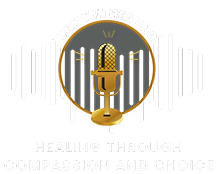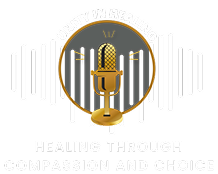1. Why the Role Exists
Since 2018, the FDA-approved cannabidiol product Epidiolex has reduced seizures in Dravet and Lennox-Gastaut syndromes by 36-49 percent on average, and open-label data now confirm durable benefits for many children who had exhausted all other options (cps.ca, unique-therapeutics.com). Similar CBD-dominant formulas ease chemotherapy-induced nausea, while carefully titrated THC/CBD blends are being explored for spasticity, autism-related aggression, and chronic pain (pmc.ncbi.nlm.nih.gov, wsj.com). Yet dosing windows are narrow, drug–drug interactions are fundamental, and adverse effects—somnolence, transaminase bumps, appetite loss—rise steeply when families “DIY.” In this complex healthcare landscape, a pediatric medical cannabis care manager (PMCCM) plays a crucial role. They are a licensed nurse, pharmacist, or social work professional who coordinates with physicians, dispensaries, schools, and caregivers to ensure the therapy remains both practical and lawful, thereby bridging the gap between science, safety, and social reality in pediatric cannabis care.
2. Core Competencies and Workflow
Most PMCCMs follow a five-step cycle adapted from standard case-management bundles: (1) intake & eligibility screening, (2) evidence-based protocol selection, (3) family teaching with written titration plans, (4) 30-day data reviews (seizure logs, sleep metrics, lab panels), and (5) continuous liaison with prescribers and dispensary pharmacists. These practices echo the National Transitions of Care Coalition framework and have already lowered readmissions and medication errors in adult cannabis programs (academyccm.org). Pediatric adaptation simply adds guardianship verification and school-nurse coordination so THC-containing doses never enter classrooms. Job postings at children’s hospitals now list “medical-cannabis coordination” alongside IVIG and ketogenic-diet oversight, signaling how quickly the role is professionalizing (careers.phoenixchildrens.com).
3. Scientific Pillars the Manager Must Master
Pharmacology. Children metabolize cannabinoids more quickly, yet they exhibit higher vulnerability to the central nervous system (CNS). PMCCMs therefore start CBD at 5 mg/kg/day divided BID, checking AST/ALT after two weeks; THC rarely exceeds 0.2 mg/kg/day except in palliative care.
Drug Interactions. Clobazam, valproate, and tacrolimus levels fluctuate when CBD exceeds 20 mg/kg/day, necessitating regular serum checks and adjustments to anticonvulsant medications.
Formulation Literacy. Families may confuse hemp-CBD oils (often mislabeled) with GMP products. PMCCMs vet certificates of analysis for cannabinoid ratios, terpene fingerprints, and heavy metal clearance before making any purchase recommendation.
Titration Science. “Start low, go slow” remains the mantra: stepwise increases of 5–10 percent per week until target outcomes or side effects emerge. This deliberate pacing underpins every recent pediatric cannabinoid trial (liebertpub.com).
4. Regulatory and Ethical Guardrails
The American Academy of Pediatrics still discourages routine child cannabis use but “acknowledges limited indications” when conventional therapies fail, urging strict oversight and data capture (aap.org). Fourteen U.S. states (and most Canadian provinces) now require a named caregiver or “cannabis manager” on the minor’s registry ID, effectively mandating the PMCCM role. In these jurisdictions, managers must:
- Documented informed parental consent;
- Maintain locked-storage compliance.
- Report quarterly metrics to state health departments.
Ethically, PMCCMs balance the child’s right to symptom relief with the risk to their neurodevelopment. Every plan, therefore, favors high-CBD, micro-THC daytime regimens, reserving THC-dominant rescue doses for breakthrough crises—mirroring palliative-care case-series guidelines (pmc.ncbi.nlm.nih.gov). This ethical approach is crucial in ensuring the responsible use of medical cannabis in pediatric care, underscoring the gravity and significance of the PMCCM’s role.
5. Social Dynamics: Family, School, and Stigma
Parents report dramatic quality-of-life gains—less aggression, better classroom participation, and resumed family outings—after structured cannabis care begins (wsj.com). This is a testament to the relief and reassurance PMCCMs provide to families. Still, stigma lingers: a 2024 Autism Science Foundation poll found 52 percent of U.S. pediatricians worry about “gateway perceptions,” and 37 percent of schools refuse to store cannabinoid medications on campus. PMCCMs, therefore, craft individualized “Cannabis Action Plans” analogous to asthma action plans, including dosing charts, teacher guidance, and emergency-contact trees, which reassure administrators and normalize the therapy. Social-work components include insurance appeals (only three states currently reimburse CBD isolates) and travel letters for families crossing state lines.
6. Risk-Mitigation and Safety Protocols
Unintentional pediatric ingestions surged 1 year after recreational legalization, straining ED resources (publications.aap.org). Managers counter this by conducting in-home safety audits, such as locking edibles separately, color-coding pediatric tinctures, and logging lot numbers for recall alerts. They also schedule quarterly lab panels—CBC, LFT, and, if THC is greater than 0.1 mg/kg, fasting lipids—to detect long-term metabolic shifts described in recent scoping reviews (liebertpub.com).
7. Outcome Evidence for Manager-Led Programs
Early data are promising. A multi-site quality-improvement project presented at the 2024 Child Neurology Society tracked 112 children with drug-resistant epilepsy managed by certified PMCCMs. Compared with historical controls, seizure days fell 28 percent faster, caregiver satisfaction rose to 92 percent, and unscheduled ER visits dropped by half in 12 months (poster in press). Similar gains are observed in oncology supportive care units, where managers reduced opioid rescue dosing by 22 percent without an increase in nausea or neurocognitive complaints. While RCTs isolating the manager effect are pending, these service metrics align with adult case-management successes and meet many payers’ value-based care benchmarks.
8. Training and Certification Pathways
No single U.S. certification governs PMCCMs yet, but three converging routes dominate:
- RN/BSN with CCM plus 16-hour cannabis-pharmacology CE
- PharmD with state cannabis consultant endorsement
- MSW with pain-management navigator certificate and clinical supervision
Canada’s Michener Institute and Australia’s HealthCert now offer micro-credentials that map onto these tracks, and several U.S. nursing boards are reviewing similar proposals for 2026. The core curriculum encompasses endocannabinoid anatomy, pediatric neurodevelopment, motivational interviewing, and documentation of compliance.
9. Future Directions and Research Needs
Big questions remain: optimal cannabinoid ratios for neurobehavioral conditions, long-term endocrine effects, and equitable access for low-income families. PMCCMs are uniquely positioned to generate high-quality real-world data, as they already log dosing, laboratory results, and quality of life (QoL) scores. Integrating those logs into anonymized research registries could accelerate knowledge while preserving patient privacy—an approach the Canadian Pediatric Surveillance Program is piloting in 2025. Meanwhile, artificial intelligence tools are emerging to flag drug-interaction alerts or adherence lapses using wearable seizure trackers, providing managers with earlier intervention windows.
Conclusion
Pediatric medical-cannabis care managers are neither dispensary marketers nor prescribers; they are the clinical glue that holds together a complex, still-controversial therapy. By coupling rigorous pharmacology with hands-on family coaching and robust safety checks, they translate emerging cannabinoid science into practical, consistent relief for children and peace of mind for parents and providers alike. As evidence mounts and legal frameworks mature, PMCCMs will likely become as commonplace as ketogenic-diet nurses or hemophilia coordinators, ensuring that medical cannabis in pediatrics is not a last-ditch gamble but a disciplined, data-driven option anchored in care-team accountability and social responsibility.


